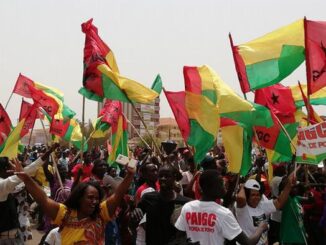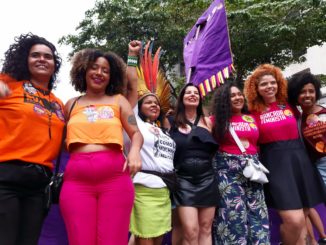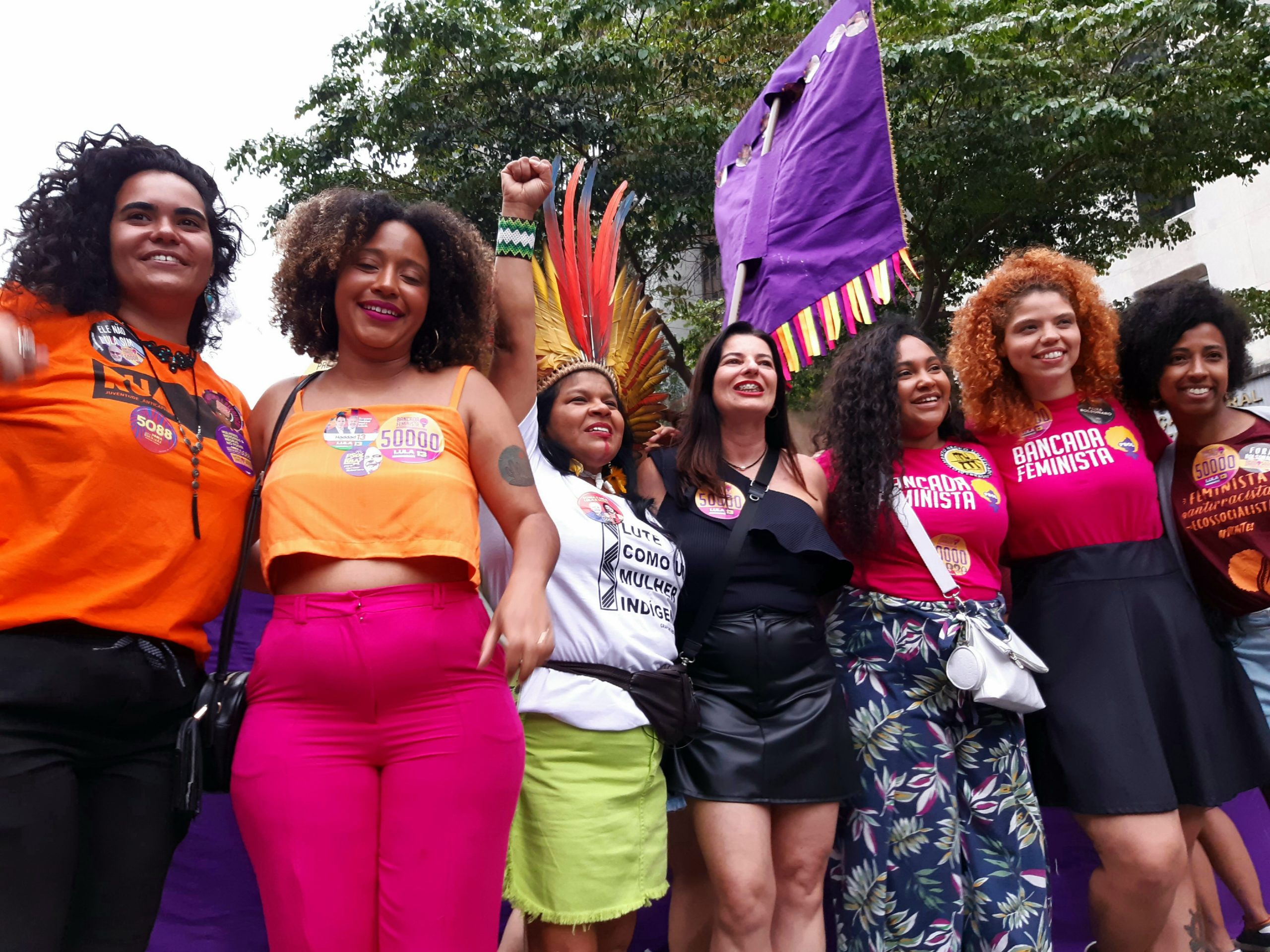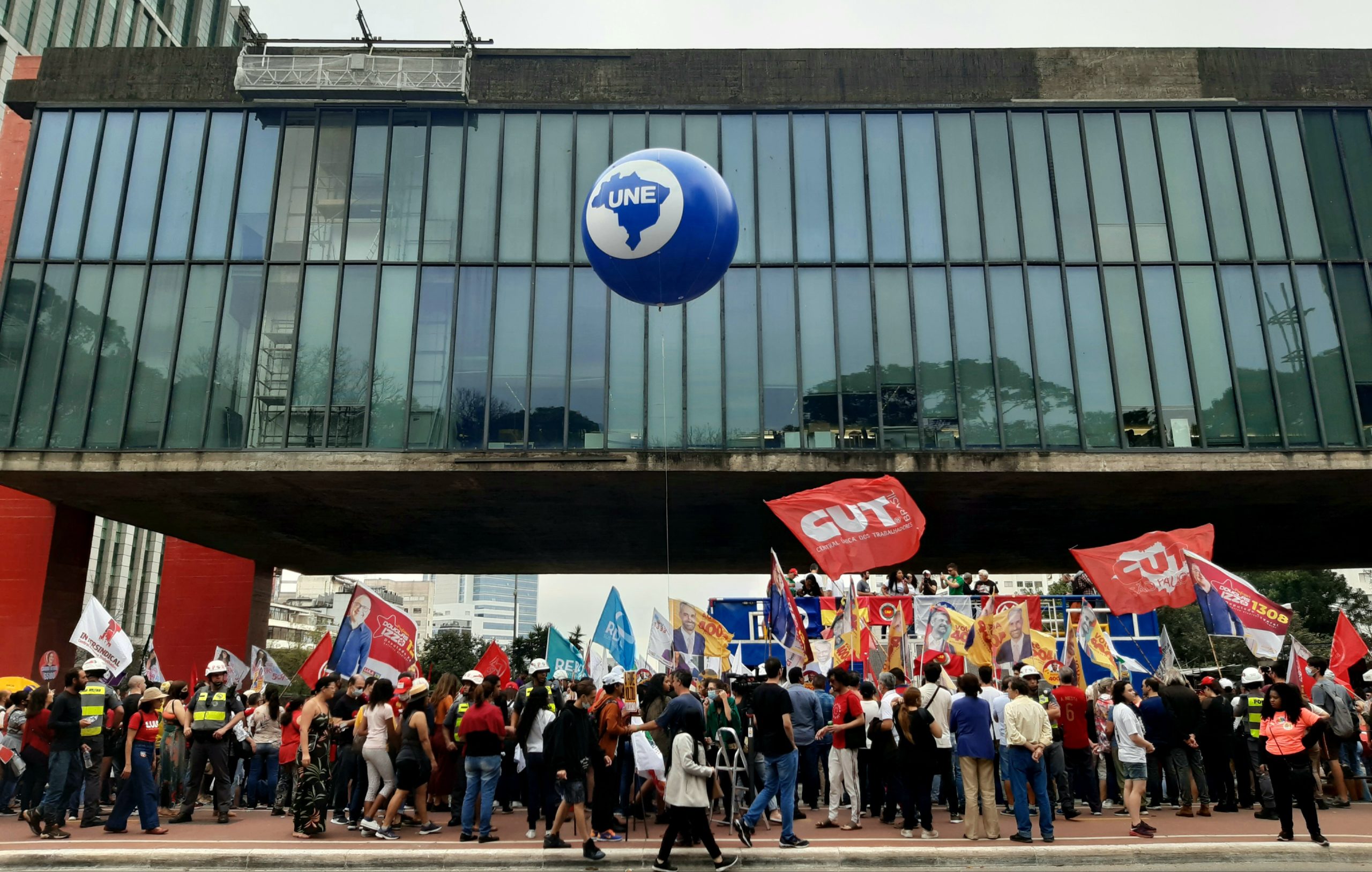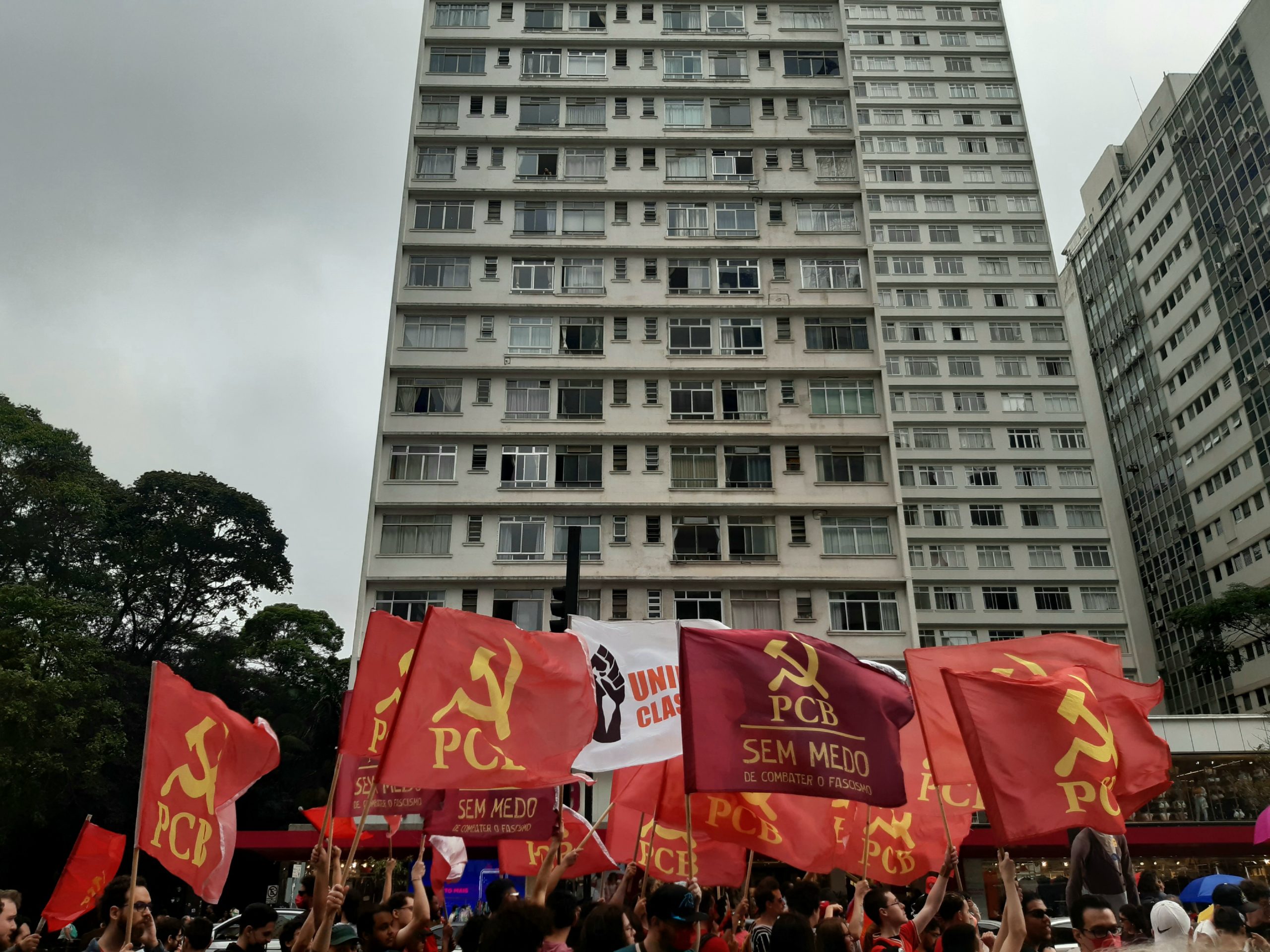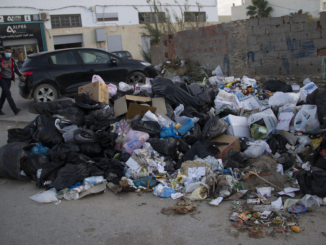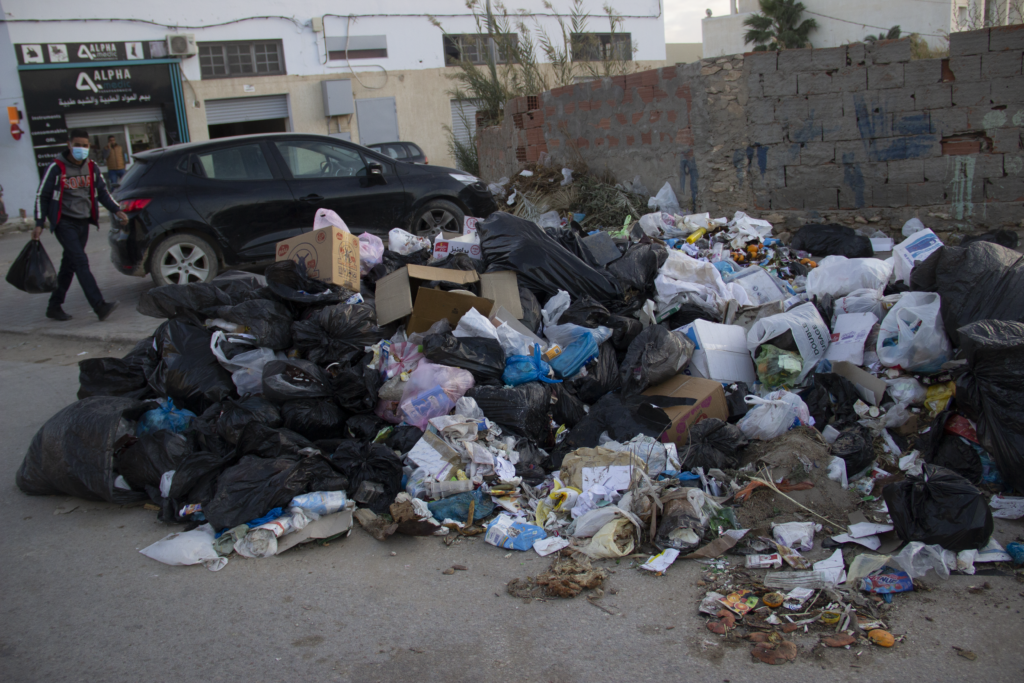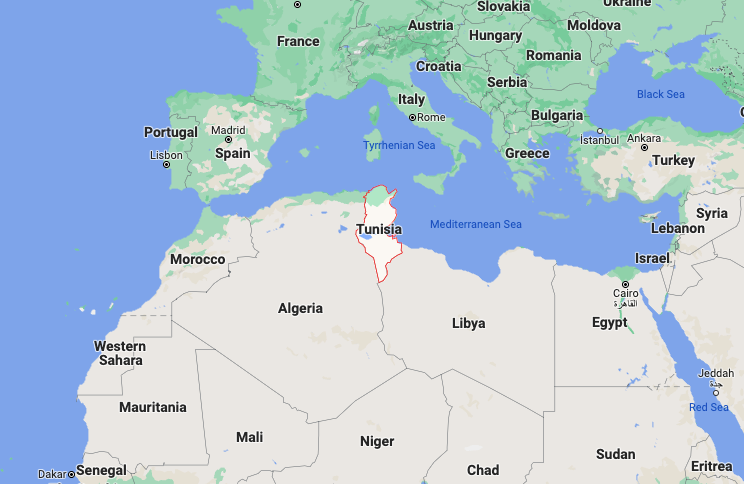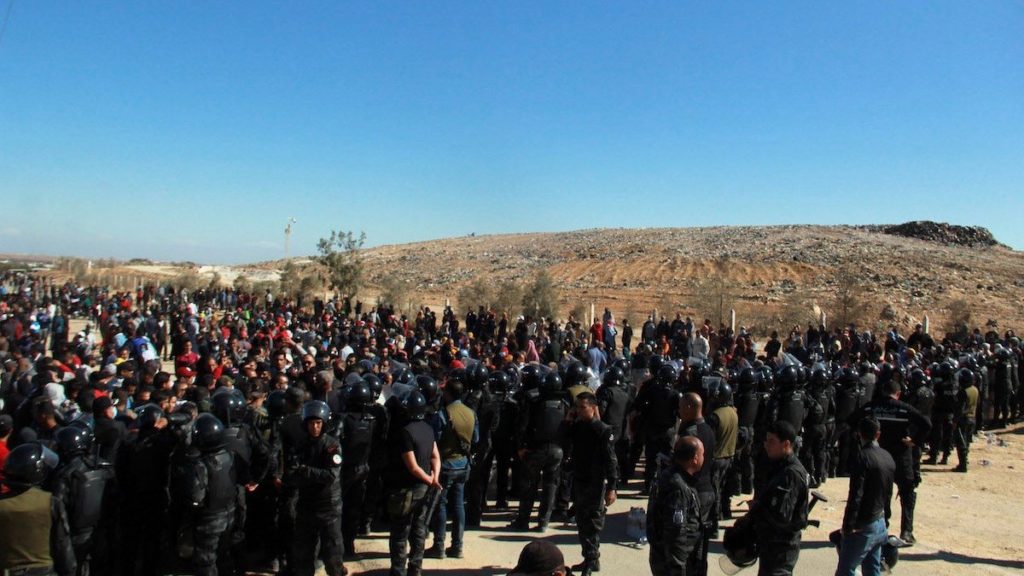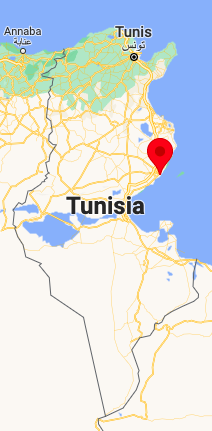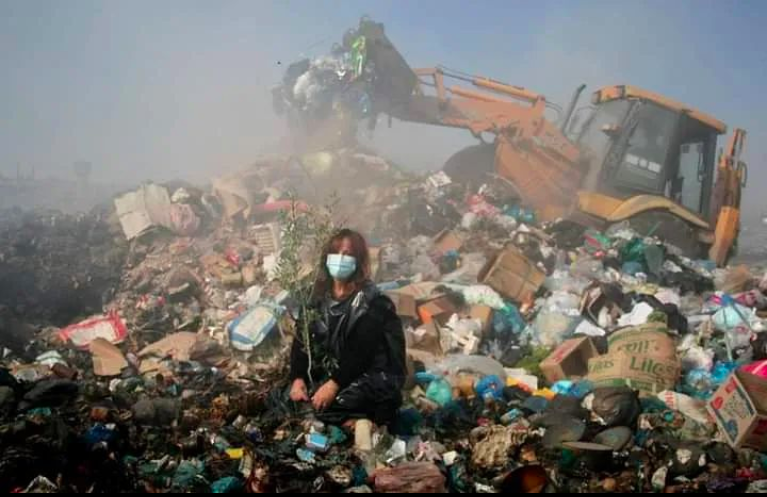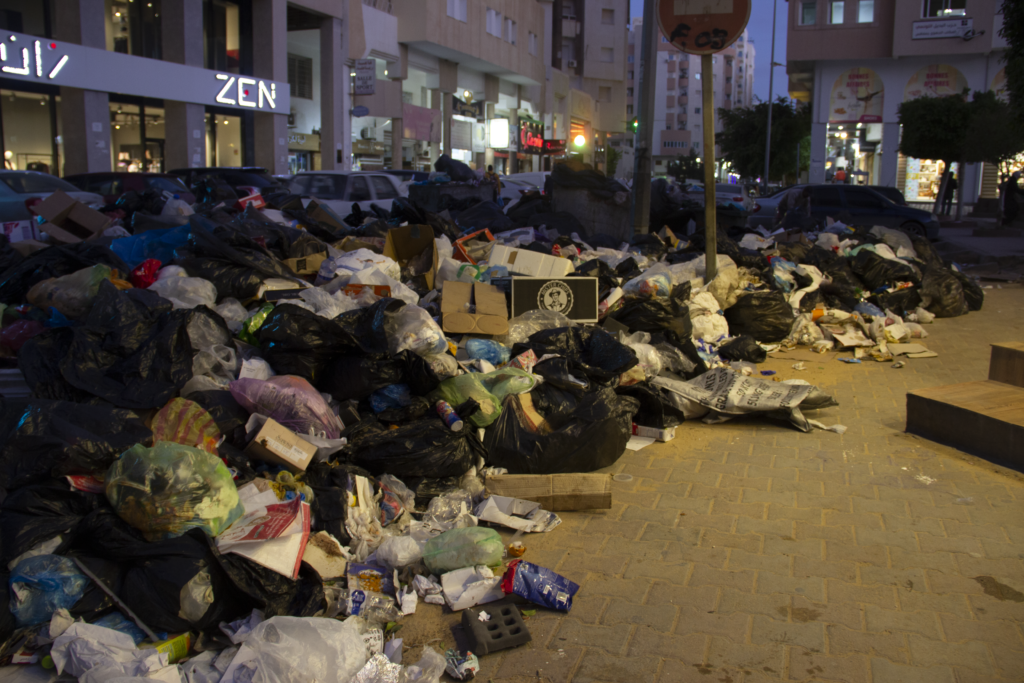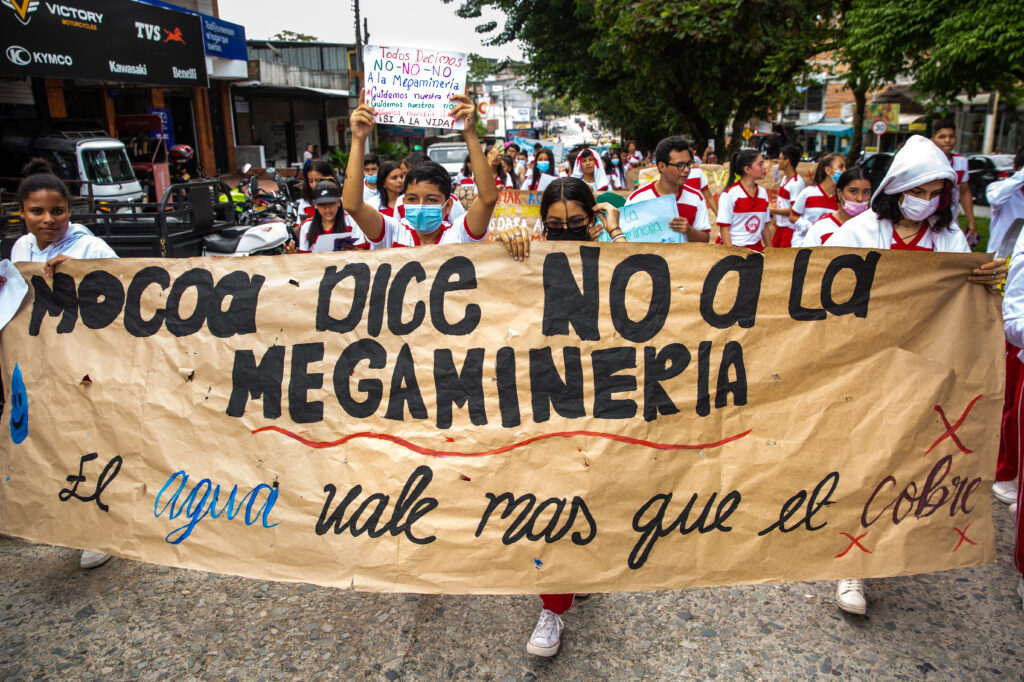
MOCOA, Colombia—“We are experiencing a profound crisis, not only in the Amazon, but throughout [the world],” said Campo Elías de la Cruz, a Catholic priest and environmental activist. “Over three centuries, the umbilical cord of Mother Earth has been cut.”
De la Cruz, who opposes the extraction of minerals in Colombia’s Putumayo Department, referred to thousands of rubber trees that had been cut down, along with 70,000 Indigenous people who died in the western Amazon during the extraction of rubber, timber, oil and quinine (a substance used to prevent malaria). “And today,” de la Cruz told Toward Freedom, “in the 21st century, they tell us they are taking the copper from Mother Earth.” The priest remarked on contemporary plans to explore and mine for copper and molybdenum to feed “clean energy” technologies in what could be one of the largest deposits of these minerals on the continent and in the world.
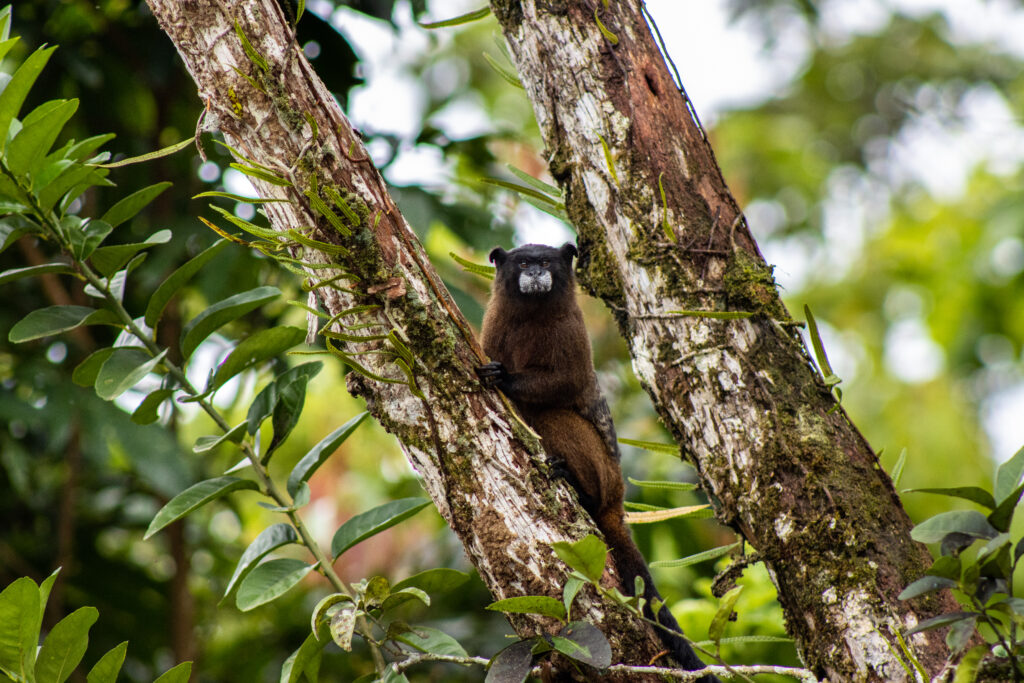
In this richly biodiverse region, where the cool mountains of the Andes meet the steamy Amazon rainforest, opinions are divided and emotions fume over the environmental and social costs of housing a “green” mining project. It is here where the Caquetá and Putumayo rivers originate, both major tributaries of the Amazon River. Any alteration of the natural state of this area is likely to impact the entire Amazon rainforest, often referred to as the “lungs” of the Earth, for absorbing carbon dioxide and releasing life-giving oxygen into the atmosphere.
All this is why a Canadian mining company appearing to move forward on exploring mining possibilities in Putumayo has raised questions about a progressive government that won power by promising environmental protection.
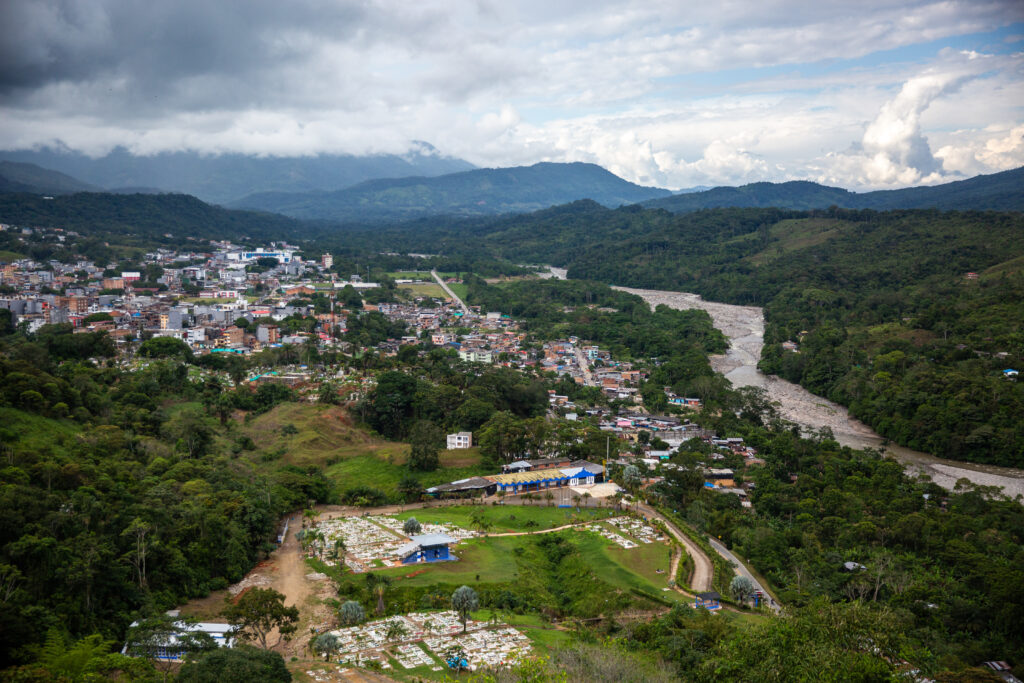
‘Clean Energy’ Promises
In 2018, the Canadian multinational company Libero Copper and Gold acquired four mining titles to explore and extract minerals, such as copper and molybdenum, in more than 11,000 hectares (27,000 acres) in Mocoa, the capital of the department of Putumayo in southern Colombia.
The proposal to extract copper and molybdenum has been framed by proponents as a “green” project that can help transition Colombia to using renewable energy and replace polluting fossil fuels, the use of which has been found to cause climate change. This proposal aligns with the policy of the progressive government of Colombian President Gustavo Petro, who took power last year. During his campaign, he vowed to stop issuing oil and gas exploration licenses and has recently advocated for the exploration of crucial minerals in the country to develop renewable energy as a climate change solution.

Libero Copper and Gold has gained support among locals—most of whom work with the company—because of the jobs and development it promises for a region that lacks access to basic services such as an adequate health system and a reliable water supply. However, the region’s history with oil extraction produced no benefits for the people, either, according to José Luis Lopez, a researcher at the Observatory of Environmental Conflicts at the National University of Colombia, in an interview with Toward Freedom.
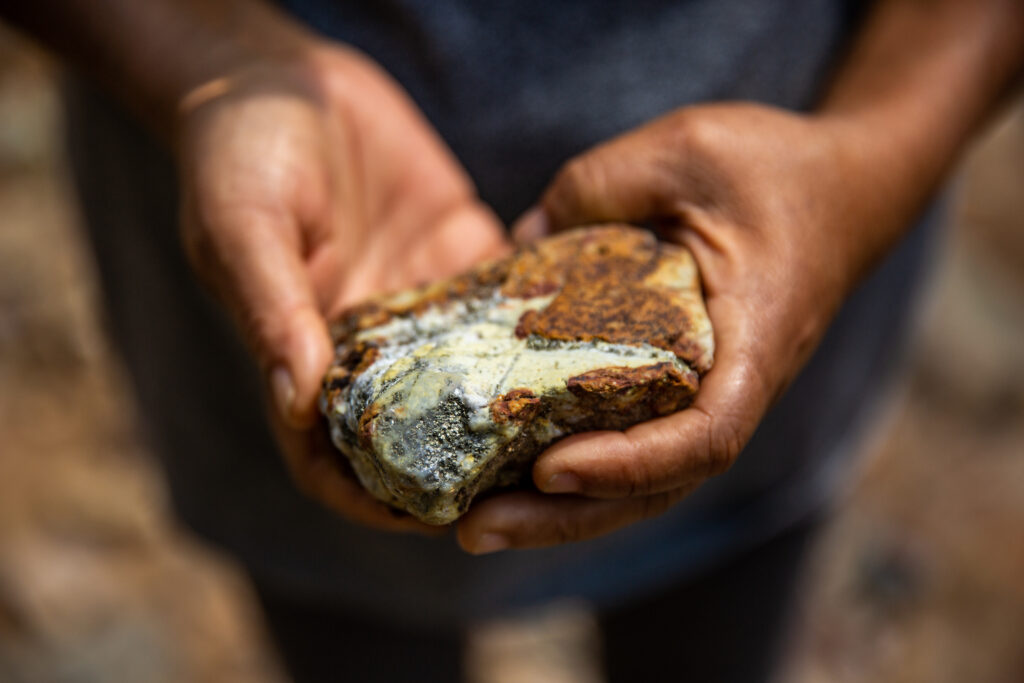
“Currently, 46 percent of the economy of Putumayo depends on oil exploitation. Yet, between 2008 and 2016, formal employment only reached 26 percent,” Lopez said, citing a study carried out by Fedesarrollo for Ecopetrol, the largest oil company in the country.
In an effort to show how “green” this project is, Libero Copper and Gold created an alliance with the National University of Colombia in Medellin as part of their “Green Route” strategy. This alliance aims to create the first copper production chain in the country for the development of electric motors and generators. However, Congress members denounced the project because of conflicts of interests that led Vice-Minister of Mines and Energy Giovanny Franco Sepulveda to resign early this year.
According to Lopez, Libero Copper and Gold’s discourse lacks consistency. “First, they told us this could be the biggest mine in the world. Later, they focused on a strategy based on social responsibility and environmental sustainability. And, now, they present a plan to extract copper in small quantities.”
Libero Copper and Gold reported the reserves contain 4.6 billion pounds (2 million tons) of copper and 510.5 million pounds (232 kilotons) of molybdenum, exceeding the amount contained in the biggest mines in the world.
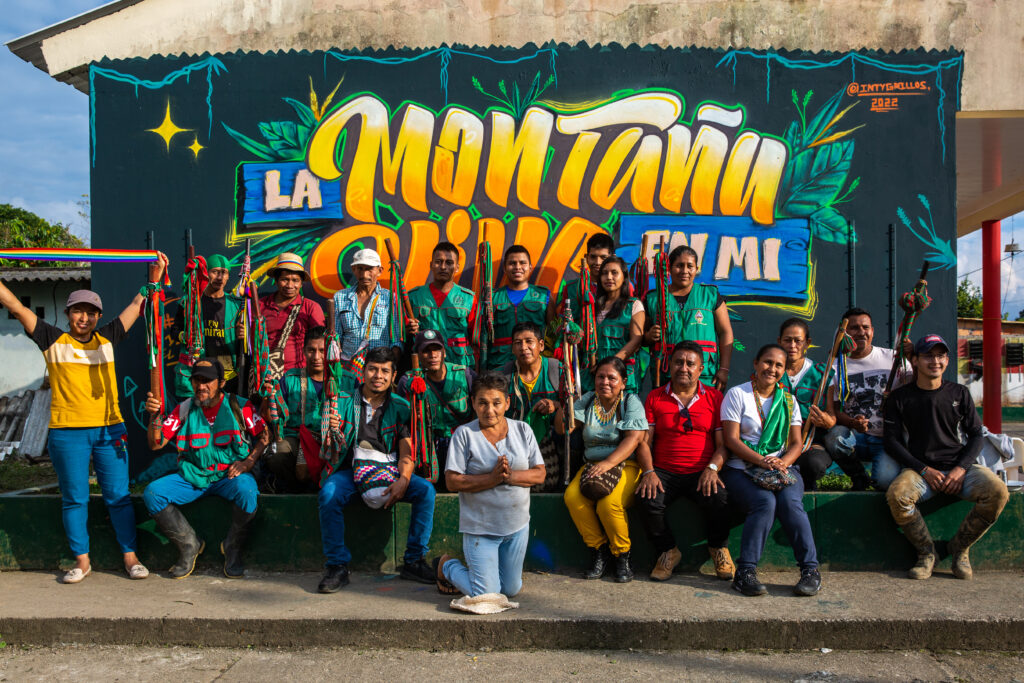
Beyond the environmental consequences, local people also worry this mining project could cause an environmental disaster similar to the one that took place in Mocoa in 2017, when intense rain led to a mudslide that caused the deaths of more than 300 people. Although the 2017 disaster was linked to the movement of Earth in a different area to where Libero Copper operates, geologists have confirmed that the mountain where the mining titles are located also contain highly fractured rocks and, therefore, are more susceptible to landslides.
“Energy transition should not under any circumstances put at risk the water supply of such an important region,” Lopez said. “If we affect the area where the water originates, and you also take into account the production of heavy metal residues, we are putting at risk communities whose survival depends on the rivers.”
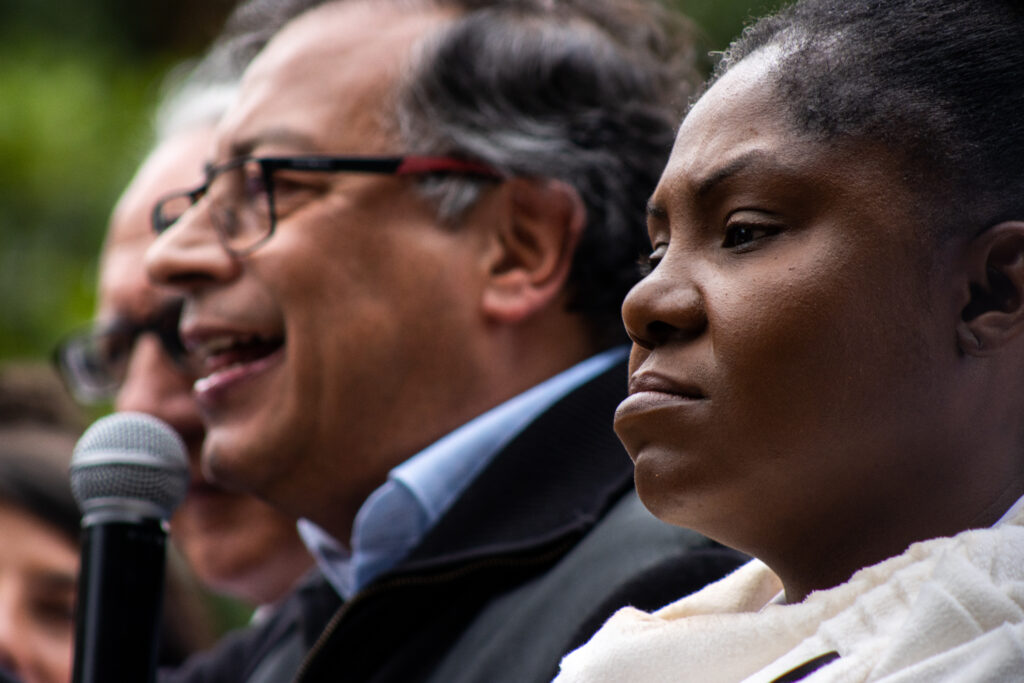
Does Clean Energy Protect the Environment and Indigenous Territories?
In April, Petro opened his speech in front of the Organization of American States (OAS) by talking about Latin America’s strategic importance in producing critical minerals for the “clean energy” transition. According to the International Energy Agency, the area from Mexico in the north to Chile in the south accounts for 40 percent of global copper production and 35 percent of the world’s lithium. Yet, the reserves remain underdeveloped, which for some means a great potential exists to increase production––not only of these two materials––but also of others essential to the transition away from fossil fuels. Those can include nickel and rare earth elements, among others.
Despite a growing consensus on the importance of reducing carbon emissions, questions have arisen over who should bear the environmental and social costs of extracting resources essential to this transition. Indigenous and peasant communities in Colombia worry copper mining will affect their livelihoods and even force them to abandon their territories.
“I feel so much pain to see that a company like Libero Copper and Gold is coming to destroy the most precious thing we have, water,” said Rufina Valencia, an elderly peasant woman who arrived in the village––where Libero Copper and Gold operates––when she was a child. It was this land that helped her and her husband, who worked in the water company, raise their kids, she said. “[Water] is the heart of our community, our Putumayo region, and the world. Because Putumayo is the lung of the world.”
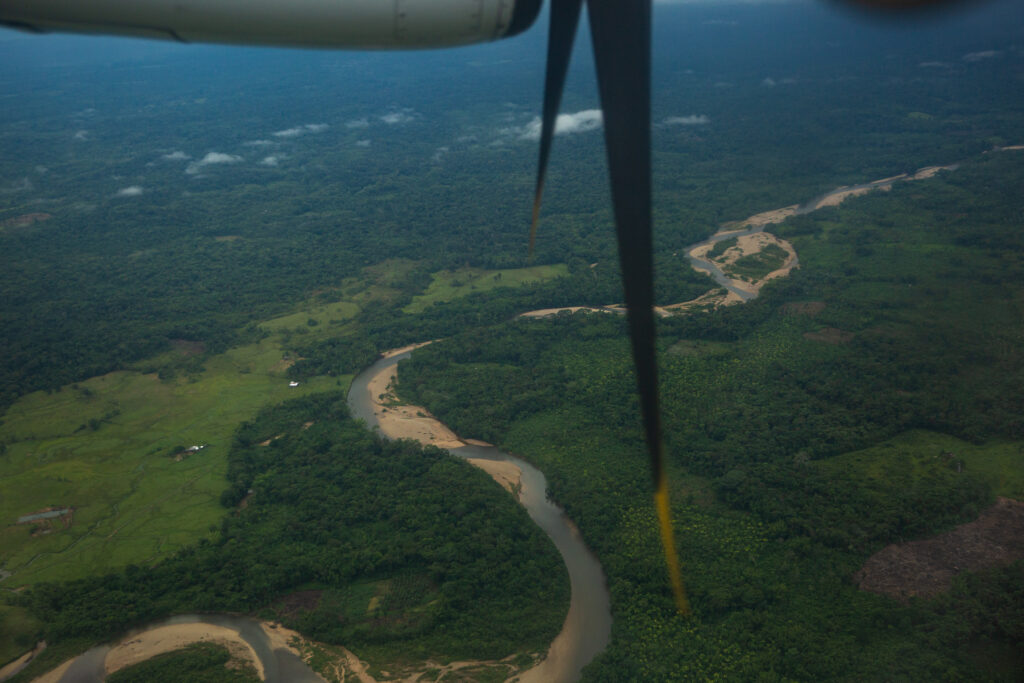
Petro’s victory during last year’s presidential elections was due to the overwhelming support of Indigenous and peasant communities, who saw Petro and Vice President Francia Márquez as allies in their struggle to defend land rights and protect their territories. This support, however, could come under scrutiny if mining interferes with their way of life.
“In different parts of the country, it has been proven how mining results in a loss of sovereignty over the lands of communities and loss over food sovereignty, as people abandoned agricultural practices to work in the mines,” explained Carlos Duarte, Coordinator of Rural Development and Land-Use Planning at Javeriana University in the capital of Bogotá, in an interview with Toward Freedom.
In this sense, Petro’s government could find itself in a tough spot as his plans to increase Colombia’s share in critical materials for a transition away from fossil fuels and toward a more independent Colombia could eclipse the interests of Indigenous and peasant communities.
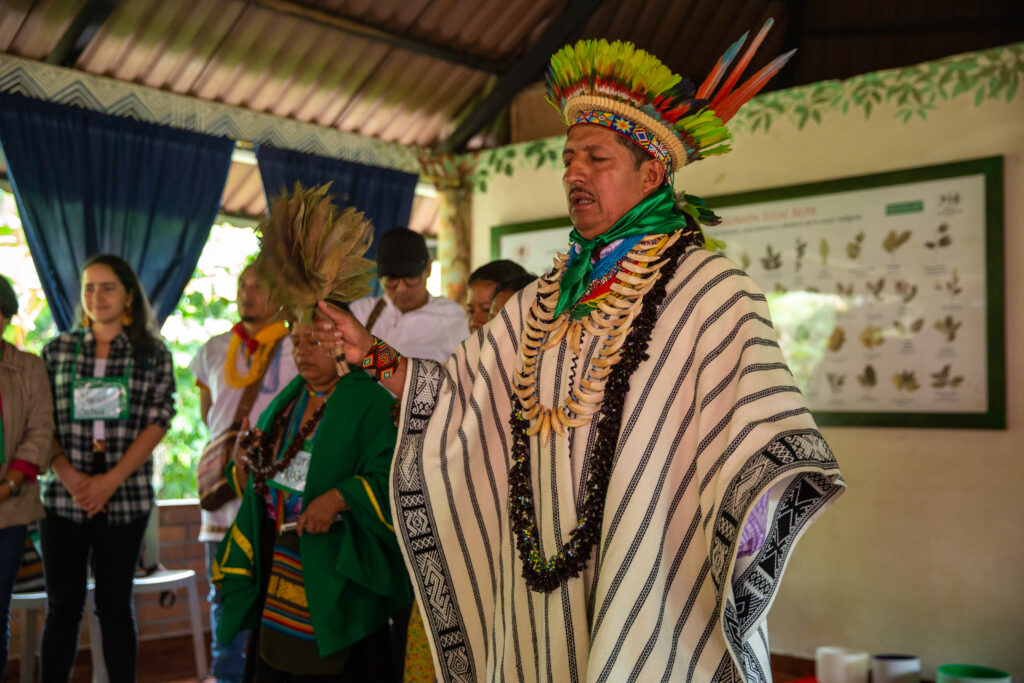
Controversy Within the Government
So far, neither Petro nor Márquez have released a public statement about the copper and molybdenum mining project in Mocoa.
Although Márquez does not have political functions related to the mining sector, she is expected to be vocal on mining issues, explains Duarte. “Márquez has stated during her campaign––and as Vice President––her conviction that mining, as it is currently implemented, is not feasible,” he said. Toward Freedom contacted Márquez’s office, requesting a statement on this matter, but did not receive a response. “She has been part of this struggle her whole life and will probably not disassociate from this matter,” Duarte added.
However, the neoliberal extractivist policies implemented by governments of the first left-wing wave that engaged a socio-ecological discourse ––as was the case of Ecuadorian President Rafael Correa ––show how these contradictory approaches have coexisted in the region.
According to Duarte, the Petro-Márquez government’s efforts to conserve the environment are obvious with the signing of the Escazú Agreement that aims to protect the environment and the lives of environmental activists. Although the agreement was signed in 2018, it was only until late last year that Colombia ratified it. The question remains of how the pair will move on the mining question. “Will they favor environmental protection or will they take an extractivist approach to satisfy the global demand for these resources?” Duarte asked.
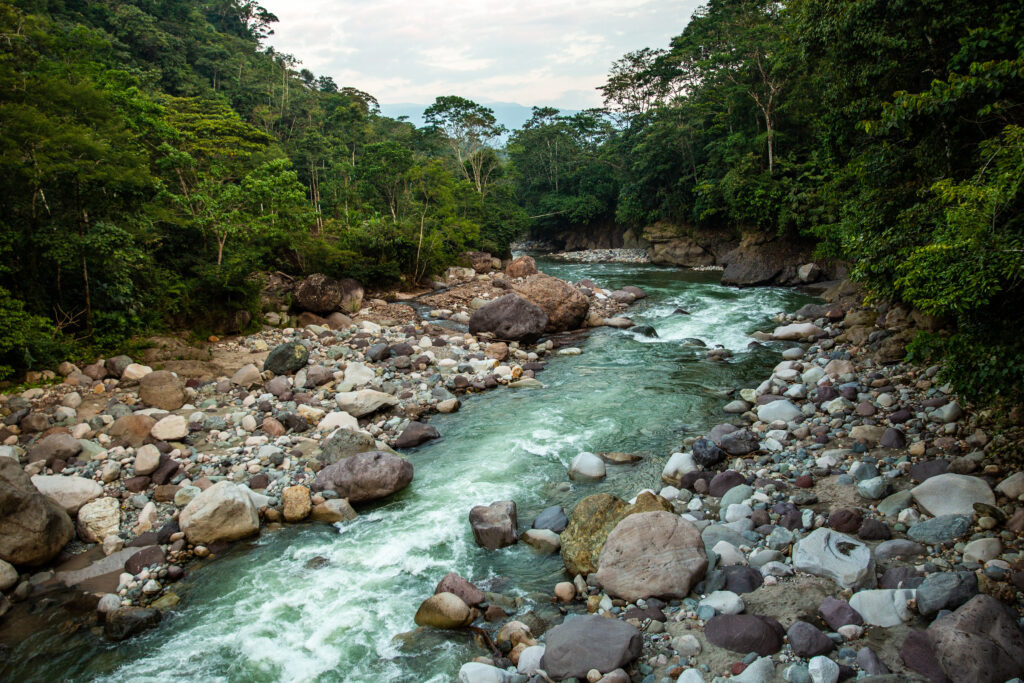
For now, the Colombian government is revising the existing mining code—which many hope will toughen regulations and protect the environment. The Petro-Márquez administration has approved the National Development Plan 2022-26, in which the protection of water is one of the three central elements of territorial planning and its development strategy. A fact that Lopez also associates with the government’s willingness to protect the environment.
“The energy transition has an enormous demand for strategic minerals. At the global level, that means extraction frontiers are under pressure,” said Minister of Mines and Energy Irene Vélez when visiting Indigenous and local communities in March in Mocoa. “But this government is not going to generate a copper rush that will leave social and environmental destruction.”
On various occasions, the National Mining Agency (or ANM in Spanish) has stated that the company cannot conduct any exploration or exploitation activities due to the 020 Regional Accord prohibiting medium and large-scale mining in Mocoa. However, the company has violated this accord by carrying out exploration activities. Such violations are verifiable on the company’s website, where they report on their activities. On this matter, the ANM is conducting an investigation but so far has not presented its findings.
In response to Toward Freedom‘s inquiry regarding the investigation, the agency said the process is still underway. However, this exceeds the time limit set forth in Article 288 of the Mining Code.
For now, Libero Copper and Gold continues operating in the territory and the people refuse to relent.
“I will not sell my land because I don’t want future generations to say they were left in a desert, impossible to survive because of my decision,” said Valencia, who has lived in Putumayo since childhood. “But if that project continues, we worry we will be forced to sell when the water is contaminated.”
The video above was first published by Mongabay.
Natalia Torres Garzón graduated with an M.Sc. in Globalization and Development at the School of Oriental and African Studies in London, United Kingdom. She is a freelance journalist who focuses on social and political issues in Latin America, especially in connection to Indigenous communities, women, and the environment. Her work has been published in Earth Island, New Internationalist, Toward Freedom, the section of Planeta Futuro-El País, El Salto, Esglobal and others.
Antonio Cascio is an Italian photojournalist focused on social movements, environmental justice and discriminated groups. He has been working as a freelancer from Europe and Latin America. He has also collaborated with news agencies like Reuters, Sopa Images and Abacapress, and his pictures have been published in the New York Times, CNN, BBC, the Guardian, DW, Mongabay, El País, Revista 5W, Liberation, Infobae, Folha de S.Paulo, Amnesty International and others.

